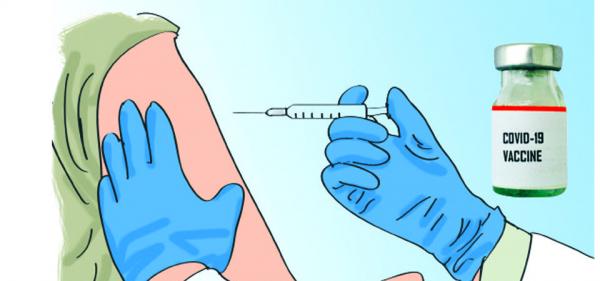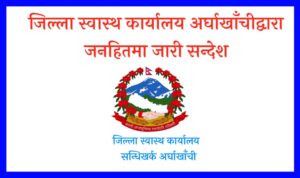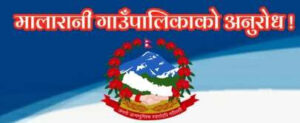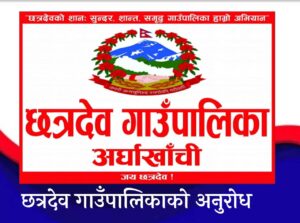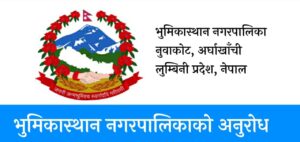22 Aug, 2021
By Sampada A. Khatiwada Rising Nepal
Kathmandu, Aug. 22: The nation has been observing a considerable rise in coronavirus cases for the past couple of weeks. Despite the enforcement of five-month-long prohibitory order, the rate of infection has not declined as the transmission of the virus is at the community level.
The Ministry of Health and Population (MoHP), virologists, and the public health experts have already warned that the third wave of the coronavirus pandemic is inevitable and the unvaccinated group is relatively more exposed to the risk.
Although the vaccination campaigns targeting different age groups are in full swing, the need of inoculating the pediatric population is still overlooked. Furthermore, the MoHP had issued a notice on June 4 stating that children would be more vulnerable during the third wave. Also, a circular was issued on June 5 asking all hospitals to allocate 20 per cent of their beds for the treatment of the virus-infected minors.
As the possibility of the third wave has left parents and guardians worried, they have raised concerns over ensuring vaccines to their wards.
“As a father of a 12-year-old child, I am concerned about my daughter’s health safety. As my wife and I have to attend to work every day, we are already exposed to the risk of infection,” said Nimesh KC, 37, a banker. “ Although everyone in my family other than my daughter has already been vaccinated, we could still be the carrier of the virus, leaving her at risk. So such families would be a lot safer if the government ensures vaccines to children as well.”
Dr. Nischal Maskey, a pediatrician, said that various researches and studies conducted worldwide have shown that children below 18 years could be exposed to risk during the third wave although there’s no evidential proof to corroborate it.
“Given that around 90 per cent of infected children were found to be asymptomatic or mildly symptomatic during the first and second waves, prediction can be made that the severity of infection
might not be high in kids,” said Dr. Maskey, adding, “However, as new mutant variants of the virus are being reported regularly, we must be watchful in ensuring the safety of children.”
Stating that children could become the carrier or source of infection to others, Dr. Maskey said that it was vital to provide anti-coronavirus jabs to children in order to break the cycle of infection. “Moreover, vaccines are crucial in preventing the severity of infection in immunocompromised children,” he said.
“Operation of in-person classes in schools was also one of the major reasons behind the surge in COVID-19 tally during the second wave. This has made it abundantly clear that vaccination is a must before such classes are resumed.”
Likewise, Dr. Basudev Pandey, a virologist, said that people below 18 would be at risk during the third wave. “A seroprevalence study conducted last September had shown that children had created significantly fewer antibodies as compared to adults, leaving them at risk of getting infected,” said Dr. Pandey.
“Moreover, the virus during the first wave used to produce a fewer amount of Angiotensin-Converting Enzyme, a functional receptor on cell surfaces through which SARS-CoV-2 enters host cells. As several new mutants have been reported lately, they have found various ways to enter the host body,” he said, adding that efforts must be made immediately to vaccinate everyone including minors in order to mitigate the risk of yet another wave.
Dr. Krishna Prasad Poudel, spokesperson for the Health Ministry, said that no definitive evidence has shown that especially children are vulnerable to the third wave. “But as the transmission of the virus is at the community level and children are the only unexposed group who have not yet developed antibodies, they are considered vulnerable,” he said.
Dr. Poudel said that the government was providing pediatric training to thousands of health workers to provide special care to the infected minors. “However, we cannot ensure vaccines to children right away. As we are in conversation with various countries and manufacturers, vaccines for kids aged 12 to 18 might take a few months to arrive,” he said.
“Currently, Pfizer and Moderna are being provided to children aged above 12. As four million Moderna vaccines are arriving by January 2022, the vaccination drive for children is likely to start from next year,” he said.
Dr. Poudel added that the government was waiting for the evidence to start inoculating children. “If any vaccine for children is approved by the World Health Organisation (WHO) or other credible regulatory authorities, we will waste no time procuring such vaccines. But until then, abiding by the health safety protocol is the only way to say safe from the virus.” he added.
Meanwhile, addressing the House of Representatives (HoR) last Thursday, State Minister for Health and Population Umesh Shrestha said that preparations were underway to bring in Pfizer and Moderna vaccines for children.
“The government is framing an action plan to introduce vaccination drive for children so that schools can be safely resumed as in pre-pandemic days,” said Shrestha.
